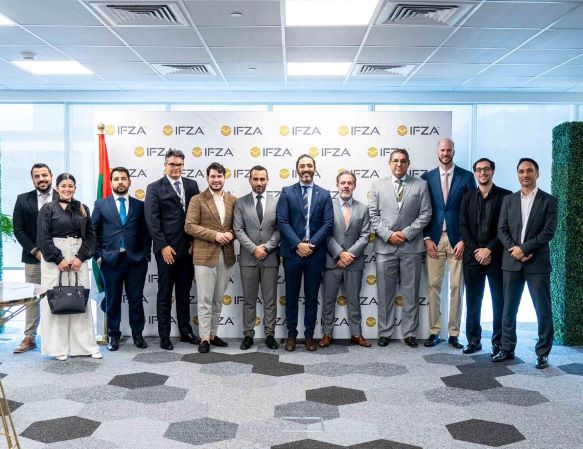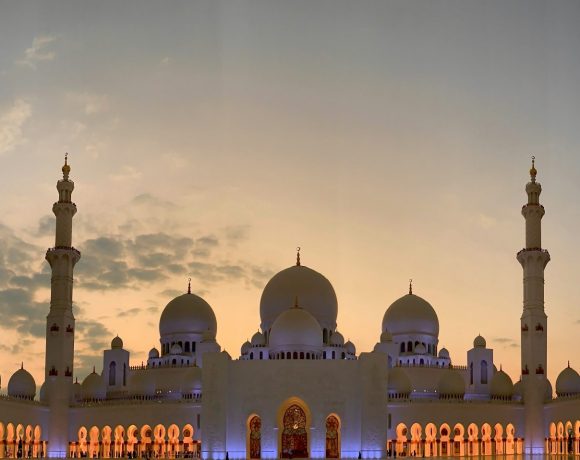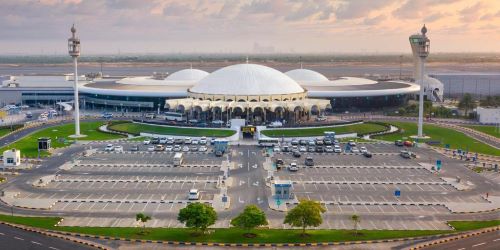UAE-based financial sector reaffirms its commitment to spearhead sustainability goals ahead of COP28

Dubai, UAE – As global efforts to tackle climate change continue to gather momentum, pressure is mounting on the Middle East finance sector to play its rightful role by innovating and deploying initiatives and partnerships aimed at achieving environmental, social and governance (ESG) objectives.
Ahead of the 28th Conference of the Parties (COP28) to the United Nations Framework Convention on Climate Change (UNFCCC), a high-powered round table discussion forum was convened in Dubai to explore how the regional financial sector can strengthen its commitment to sustainability.
Organized by the UAE’s leading investment services company, Century Financial, the forum brought together influential experts, policymakers, and industry representatives to discuss the role of financial institutions in supporting sustainability, the impact of sustainable investing, and ways to integrate sustainability into business strategies.
“We are excited to bring together some of the brightest minds in the finance industry to discuss how we can create a more sustainable future. We believe that the financial sector has a critical role to play in addressing global sustainability challenges, and we look forward to exploring innovative solutions and strategies for driving change. At Century Financial, we are committed to strengthening sustainability across the financial sector by adopting innovative and responsible business practices. We believe that by working together, we can drive positive change and create a more sustainable future for all,” said Bal Krishen, Chairman and CEO, Century Financial.
Setting the tone at the roundtable, Sameera Fernandes, Director – Corporate Affairs & Sustainability, Century Financial commented, “Our aim is to make finance industry a force for sustainability. Financial institutions have a crucial role to play in creating responsible financial frameworks that enable a sustainable future. By integrating environmental, social, and governance considerations into their decision-making processes, financial institutions can contribute to the transition towards a low-carbon, sustainable economy. This is not only a moral imperative but also a business opportunity that can generate long-term value for investors, society, and the planet”.
The stakeholders’ forum was part of Century Financials’ ongoing commitment to promoting sustainability, addressing climate change and mainstreaming the key challenges facing the sector as it transitions to a low-carbon economy.
The discussions featured a compelling presentation on ESG Maturity Assessment – A model for Self-Assessment and Transition by Dr. Waddah S Ghanem Al Hashmi, Senior Director – Fellow Board of Directors Institute GCC, and Raji Hattar, Chief Sustainability Officer – Aramex. Other key participants included Ibrahim Al Zu’bi, Chair of the Global Council on SDG13, Dr. Kamel Mellahi, Centre for Responsible Business – Dubai Chambers, Maali Khader, CEO – Middle East Institute of Directors, Nadia Ibrahim, Board of Director – United Nations Global Compact UAE, Sal Jafar, MD, ESG MENA, Imad Malik – CEO, Sharaf Exchange, among others.
Some of the key takeaways from the high level panel include: Encouraging the adoption of ESG principles and incentivizing companies, developing green financing mechanisms, , supporting green startups by providing funding, mentorship and access to networks, encouraging sustainability education and training, forging partnerships with international organizations and fostering collaboration between stakeholders, creating forums for discussion and knowledge-sharing on sustainable finance practices. Driving collaboration between financial institutions, regulators, and policymakers that help drive progress and establish accountability mechanisms and metrics to track progress was considered most critical in working towards these sustainability goals.
“ESG reflects the stability of an Organisation. Through the ESG assessment, companies can help identify areas and implement strategies to improve their performance in key areas. This can lead to better risk management, enhanced stakeholder engagement, and improved operational efficiency. We believe that by working together, we can create a more sustainable financial sector that supports a sustainable future for all,” said Dr. Waddah S Ghanem Al Hashmi, Senior Director – Fellow Board of Directors Institute GCC.
Commented Ibrahim Al Zu’bi, Chair of the Global Council on SDG13, “We need to promote investment in low-carbon, climate-resilient infrastructure and technologies. Financial institutions can set targets for reducing their carbon footprint and supporting the transition to a low-carbon economy. This might involve investing in renewable energy, financing energy efficiency projects, or supporting research and development of new clean technologies. Greater awareness by providing training and resources to investors and stakeholders, or supporting initiatives that raise public awareness about the need to take action on climate change will also a long way forward”.
Insights shared by some of the panelists
On his part, Raji Hattar, Chief Sustainability Officer, Aramex said, “Investors are demanding more than just profits, they are seeking sustainable and responsible investments. ESG accountability is now a crucial aspect of investment evaluation, highlighting the increasing significance of ethical and environmental considerations. Clarity on ESG performance, benchmarking against peers, alignment with the ESG frameworks, improved stakeholder communication and risk management can help companies transition to a more sustainable business.”
Maali Khader, CEO – Middle East Institute of Directors, “I think the financial sector is a rigid sector and one of the first tasks is to migrate away from that rigidity and elevate focus towards impact. The financial sector should also look into their embedded emissions and how they are supporting and minimizing these emissions. They also have the responsibility to encourage green finance, green products and more”.
The round table discussion also showcased the emergence of new initiatives and partnerships aimed at promoting sustainable investments. As the world prepares for COP28, the event underlined the crucial role of the finance sector in tackling the climate crisis and the need for collective action to build a more sustainable future.
ENDS
About Century Financial
Century Financial Consultancy LLC (Century Financial) is an award winning privately-owned financial services provider headquartered in Dubai, United Arab Emirates that specializes in investments and trading in CFDs (Contracts for Difference), forex, indices, shares, commodities, treasuries and ETFs, along with exchange-traded derivatives. The company’s service portfolio includes investment consultancy, research and analysis, and financial promotional services across forex and CFDs.
For editorial enquiries, please contact Matrix PR
Krishika Mahesh – krishika@matrixdubai.com
Ambika Jadeja – ambika@matrixdubai.com
Or call Tel: 04-3430888
Last Updated on 11 months by News Desk 2













